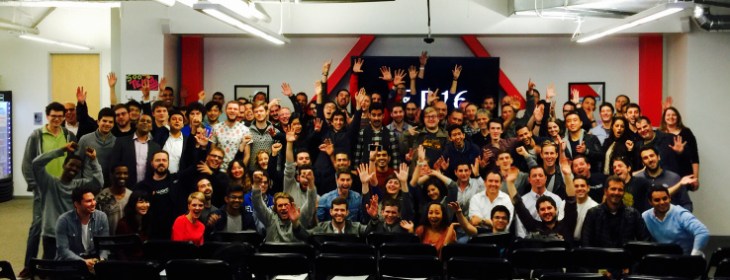As of today, founders have a lot of options as to what kinds of accelerator programs they might want to try to get in to. There’s Y Combinator, Techstars and 500 Startups, among many others.
But with so many choices, it might be easy for an outside observer to not really directly distinguish between them. For Dave McClure — who wants to show that his firm 500 Startups can offer something more than the rest of those programs — that’s an issue. The accelerator program, which has been running for several years, is one in which the firm looks to put a lot of emphasis on growth.
So, starting today, they’re ditching the nomenclature as the firm tries to overtly show the differences between what 500 Startups offers and the rest of the batch. They’re now called the “500 Seed Program” and the “500 Series A Program,” both of which have shown to have an increasing barrier to entry, McClure said.
For companies looking to join either program, the firm is going to have to see some kind of traction, McClure said. The differentiation between the programs is more along the lines of where the company is looking to invest, compared to the structures that other accelerators have. The 500 Seed program, in particular, is looking for some raw metrics that show the companies are going in the right direction before joining. Beforehand, the accelerator would accept companies at an earlier stage for a $50,000 check at five points in the company.
“For certain business models, revenue is the right metric, others might be monthly active users, or one or two enterprise pilots,” he said. “In general we’re trying to develop customer acquisition models from something that’s not zero.”
Now, the 500 Seed Program will serve out a $150,000 check for six points in the company, minus a $37,000 tuition fee. Those fees help the firm continue to operate with a lot of overhead as its staff and added services continue to grow over time, with more than 100 people operating. The accelerator traditionally can cost millions of dollars to operate, McClure said.
“It’s more a philosophy of when we like to invest,” McClure said. “Fintech, it’s not easy to do a lean startup method, you have to make sure things works. There are maybe a little more propensity for Y Combinator to bring in companies where they’re betting on the founder and company progress may or may not matter. We’re more likely to say we want to help them with growth marketing, we need to see a functional product with most categories and some amount of customer traction.”
The 500 Series A program is more geared toward startups that are starting to see a lot of traction and need help with the growth and marketing of their companies. That added services is 500 Startups’ sweet spot, McClure said, and the program consists of checks between $150,000 and $250,000, again minus a $50,000 tuition fee.
All of this is to say that the firm is looking to give a strong selling point to its partners that it provides a different kind of value beyond the other accelerators out there. Seed-stage accelerators are often a good entry point for investors looking to get into companies very early — even pre-product — and part of that literally comes down to the branding and optics in order to attract the best companies.
“A lot of LPs say that’s the first entry point for us,” he said. “We actually think that’s probably a better average return than the seed stage case. You can get in at a lower valuation, get more time with the companies and learn more about them.You understand more on the good and the bad.”
For McClure and 500 Startups, much of the job is traveling the world looking for deal flow. The firm has a number of micro-funds and other ways to try to source the best deal flow it can, in addition to its existing venture fund. The structure in place is now geared toward streamlining that and helping the firm itself continue to grow in order to add those additional services and value to its companies, he said.
